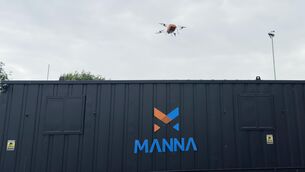China curbs EU medtech procurement from today

There are approximately 450 medical device and technology companies operating in Ireland including nine of the world’s 10 largest companies in this space. According to Irish Medtech, the sector employs more than 48,000 people. Stock picture
China will impose some reciprocal curbs on medical-device procurement for companies based in the European Union, adding tensions between the two major trading partners just as Beijing seeks to shore up ties while it fights a trade war with the US.
Starting from today, Sunday, EU-based companies will be excluded from the Chinese government procurement for certain medical devices if the value is higher than 45m Chinese yuan (€5.3m), according to a statement from the country’s ministry of finance on Sunday.












